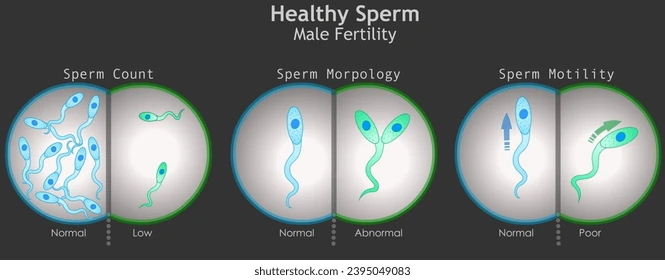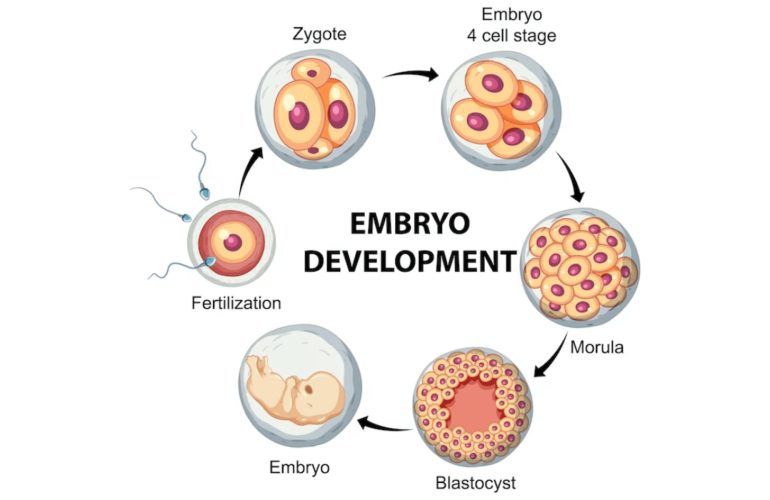Infertility is a complex issue that can stem from various factors, including issues related to sperm health. While much focus is often placed on female factors in infertility, male reproductive health is equally critical. Sperm infections can significantly impact the success of In Vitro Fertilization (IVF) treatments. This article will explore what sperm infections are, their potential causes, how they can affect IVF treatment, and strategies for managing these infections.
Understanding Sperm Infections
Sperm infections refer to infections that affect the sperm or the male reproductive system, including the testes, epididymis, or prostate. These infections can lead to inflammation and impair sperm production and function. Common types of infections include:
- Epididymitis: Inflammation of the epididymis, often caused by bacterial infections, sexually transmitted infections (STIs), or urinary tract infections (UTIs).
- Orchitis: Inflammation of the testes, which can be viral or bacterial. Mumps is a well-known viral cause of orchitis.
- Prostatitis: Inflammation of the prostate gland, which may result from bacterial infections and can affect sperm quality.
Causes of Sperm Infections
Sperm infections can arise from various sources, including:
- Sexually Transmitted Infections (STIs): Conditions such as chlamydia and gonorrhea can lead to infections in the male reproductive tract.
- Urinary Tract Infections (UTIs): Infections that start in the urinary tract can ascend to the reproductive organs.
- Bacterial Infections: These can occur due to poor hygiene, catheterization, or other medical procedures.
- Viral Infections: Infections like mumps can lead to orchitis, impacting sperm production.
Effects of Sperm Infections on IVF Treatment
Sperm infections can have several negative effects on IVF treatment, including:
-
Decreased Sperm Quality:
- Morphology and Motility: Infections can impair sperm morphology (shape) and motility (movement), making it more difficult for sperm to reach and fertilize an egg.
- DNA Integrity: Sperm infections can lead to DNA damage in sperm, impacting the embryo’s development potential.
-
Altered Seminal Fluid Composition:
- Infections can change the composition of seminal fluid, potentially affecting the environment necessary for sperm function and survival. This can hinder the fertilization process during IVF.
-
Inflammation:
- Inflammation from infections can create an unfavorable environment for sperm, affecting their ability to fertilize the egg and potentially leading to poor embryo development.
-
Increased Risk of Miscarriage:
- Studies suggest that infections in the male reproductive system can be linked to higher rates of miscarriage in couples undergoing IVF treatment. This is often due to the compromised genetic quality of the sperm.
-
Impact on Overall Fertility:
- Chronic infections can lead to long-term fertility issues in men, complicating the IVF process further. Persistent infections may necessitate additional treatments before IVF can proceed.
Diagnosis and Management of Sperm Infections
Proper diagnosis and management of sperm infections are crucial for couples considering IVF. Here are some steps involved:
-
Medical Evaluation:
- Men experiencing infertility should undergo a thorough medical evaluation, including a sperm analysis to assess sperm quality and tests for infections.
-
Laboratory Tests:
- Semen culture and sensitivity tests can identify specific infections and the most effective antibiotics for treatment. Blood tests may also be conducted to check for STIs or other underlying conditions.
-
Antibiotic Treatment:
- If an infection is diagnosed, appropriate antibiotic treatment is essential. Treating the infection can help restore sperm health and improve the chances of successful IVF.
-
Lifestyle Modifications:
- Lifestyle changes such as maintaining good hygiene, avoiding STIs, and practicing safe sex can help prevent infections. Reducing alcohol consumption, quitting smoking, and managing stress can also improve overall reproductive health.
-
Follow-Up Testing:
- After treatment, follow-up testing is important to ensure the infection has cleared and to re-evaluate sperm quality. This helps determine readiness for IVF.
Conclusion
Sperm infections can significantly affect IVF treatment outcomes by impairing sperm quality, altering seminal fluid composition, and increasing the risk of miscarriage. Understanding the potential causes and effects of these infections is essential for couples facing infertility. Early diagnosis, appropriate treatment, and lifestyle modifications can help manage sperm infections and improve the chances of successful IVF treatment. As reproductive health continues to evolve, addressing male factors in infertility will be crucial for enhancing overall success rates in assisted reproductive technologies.
For any of your fertility problems, please do not hesitate to contact us. At Fertility Solutions we pride ourselves with the excellent tailored personal care we provide to our patients for their specific needs. A team member will contact you as soon as we get your message, and construct a personal treatment plan for your fertility problems in the country of Cyprus. You can also contact our clinics directly through the links below.
Cyprus Crown IVF Contact: https://en.cypruscrownivf.com/contact
Cyprus American IVF Contact: https://www.cyprusamericanivf.com/contact-us/
Dr. Halil Ibrahim Tekin (Dr. HIT) Youtube: https://www.youtube.com/@dr.halilibrahimtekin1715
Cyprus American IVF Youtube: https://www.youtube.com/@AmerikanTupBebekMerkezi




